Episodes
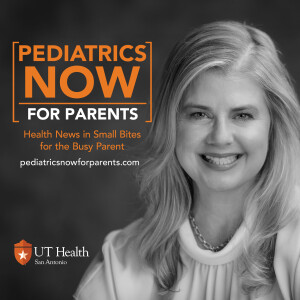
8 hours ago
8 hours ago
In this episode of Pediatrics Now for Parents, host Holly Wayment is joined by Dr. Ted Wu, a seasoned pediatric critical care physician, to discuss crucial topics surrounding child safety and health. With nearly two decades of experience, Dr. Wu shares insights on the importance of prevention, particularly in avoiding accidental injuries in children.
The conversation delves into water safety, highlighting the significant risks associated with drowning, and emphasizes the need for vigilant supervision around pools and bodies of water. Dr. Wu underscores the role of preventive measures, like wearing life jackets, in safeguarding children.
Furthermore, Dr. Wu provides an overview of innovative treatments for children who have experienced near-drowning incidents, explaining how therapeutic hypothermia can aid in reducing brain injury following a lack of oxygen. The episode also touches on the humanistic side of pediatric healthcare, emphasizing the resilience of children and the collective efforts of medical professionals and families in achieving positive outcomes.
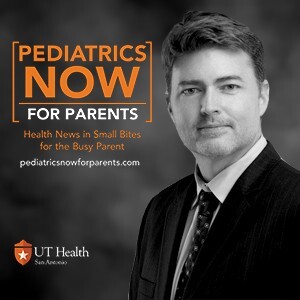
Tuesday Jun 17, 2025
Tuesday Jun 17, 2025
In this episode of Pediatrics Now for Parents, host Holly Wayment explores essential vaccine insights with infectious disease expert, Dr. J.B. Cantye, who is also a father of three. Discover updated COVID-19 and flu vaccination recommendations for children, understand the significance of the three-dose COVID vaccine regimen, and learn why both flu and COVID vaccines should be prioritized for your kids' health. Dr. Cantey shares the science behind vaccines, the benefits of cross-vaccine strategies, and how these preventive measures can boost lifetime immunity. Tune in for a concise yet informative discussion aimed at equipping parents with the knowledge to make informed decisions about immunizations for their children.
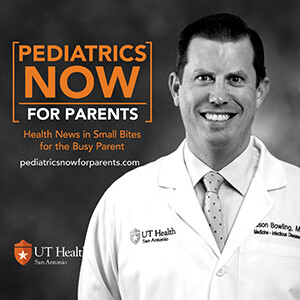
Tuesday May 20, 2025
Tuesday May 20, 2025
In this episode of Pediatrics Now for Parents, hosted by Holly Wayment and the Department of Pediatrics at UT Health San Antonio and University Health, we discuss the pressing topic of measles, which is on the minds of many parents. Joining the discussion is Dr. Jason Bowling a leading expert in infectious diseases with 15 years of experience, who provides a deep dive into the current measles outbreak.
Bowling and Wayment explore the severe neurological condition SSPE that can develop years after measles recovery, the risks of pneumonia in children post-measles infection, and the importance of maintaining a high vaccination rate for herd immunity. They also address the complications of measles infections in healthy children and those with pre-existing conditions.
The discussion highlights the significant outbreak in Texas, with 717 confirmed cases, and the tragic loss of two children. Dr. Bowling emphasizes the ongoing risk of losing measles elimination status in the U.S. due to decreasing vaccination rates, and offers insights into symptoms, testing, and prevention measures.
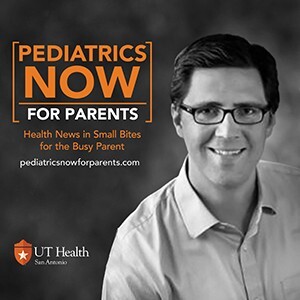
Tuesday May 13, 2025
Tuesday May 13, 2025
Part TwoJoin Holly in this episode of Pediatrics Now for Parents as she delves into the transformative practice of motivational interviewing with expert Dr. David Roberts. Discover how this unique approach can aid parents in effectively communicating with their children, addressing common parenting struggles, and nurturing intrinsic motivation in kids. Whether it's breaking down resistance or guiding adolescents towards healthier choices, motivational interviewing offers practical tools for parenting success. Tune in to learn strategies that not only support your child's growth and wellness but also foster a compassionate and respectful family environment.
www.reflectivetraining.org

Monday May 12, 2025
Monday May 12, 2025
Join Holly and Dr. David Roberts, a tenured associate professor of psychiatry at UT Health, as they dive into the transformative approach of motivational interviewing or M. I.
Discover how this technique empowers parents to help their children to make positive health choices by reflecting. Whether it’s helping children with dietary challenges or adolescents navigating chronic conditions, motivational interviewing offers a unique way to foster meaningful communication. Dr. Roberts shares insights from 20 years of experience, shedding light on how anyone can harness these skills to facilitate lasting change. This is part one on motivational interviewing. In part two we’ll talk about how MI can help parents talk to their kids about chores. Could MI really work there?
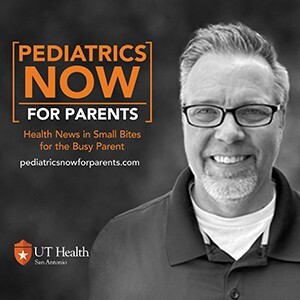
Tuesday Apr 29, 2025
Tuesday Apr 29, 2025
Balancing Fatherhood and Leadership: Insights from Paypal and Venmo's Head of Customer Service
Join mother and host Holly Wayment on Pediatrics Now for Parents as she talks with Matthew Anderson, a father of five and Vice President of Customer Service for PayPal and Venmo. Anderson shares his personal experiences and offers valuable advice on navigating the overwhelming world of medical information, stressing the importance of partnering with healthcare professionals. He also discusses practical tips like maintaining a laminated medical history for efficiency during doctor visits. Anderson's inspiring mantra, "Come what may and love it," encourages embracing life's challenges as opportunities for growth. This episode is a heartfelt conversation about patience, partnership, and the resilient spirit required to care for children.
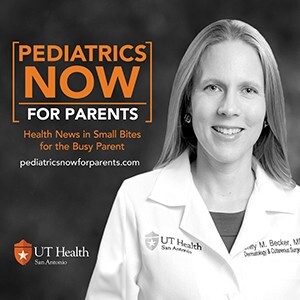
Thursday Apr 10, 2025
Thursday Apr 10, 2025
In this episode of Pediatrics Now for Parents, host Holly Wayment sits down with Dr. Emily Becker, a triple board-certified pediatric dermatologist and mother of four, to delve into the multifaceted world of acne. They explore the prevalence of acne beyond the teenage years, touching upon its occurrence in infants and adults. From understanding the hormonal influences to navigating common myths, Dr. Becker provides practical advice on how to manage acne across different age groups. The discussion examines the importance of early intervention, highlights various treatment options, and emphasizes the psychological impact of acne on children and teenagers. Tune in to discover actionable tips and the latest skincare insights to help your child maintain healthy skin and confidence.

Wednesday Apr 09, 2025
Wednesday Apr 09, 2025
Join Holly Wayment and pediatric dermatologist Dr. Emily Becker as they offer practical tips for parents. Learn about the different types of sunscreens available, the best ways to ensure children use them, and the significance of protective clothing. Dr. Becker also addresses common myths surrounding sun protection and provides valuable insights into effective skincare routines for kids and teens. Discover how to keep your family safe under the sun this spring and summer with expert advice from a mother of four and a leading dermatologist.
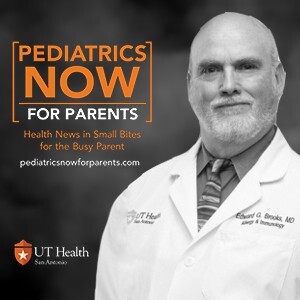
Tuesday Apr 08, 2025
Tuesday Apr 08, 2025
Join host Holly Wayment on "Pediatrics Now" as she welcomes back Dr. Ed Brooks. In this episode, they dive deep into the world of pollen allergies, focusing on the predominant tree pollen season impacting many, especially in San Antonio. Dr. Brooks shares helpful tips on managing allergies, from practical advice like wearing a mask and rinsing eyes to using nasal steroids effectively. They also explore emerging allergy treatments such as sublingual immunotherapy. Additionally, the discussion expands on the hygiene hypothesis and the balance between maintaining cleanliness and exposure to germs. Discover insightful information aimed at helping you and your loved ones navigate allergy season more comfortably.
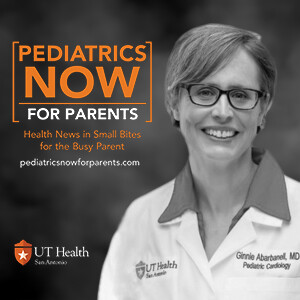
Wednesday Mar 05, 2025
Wednesday Mar 05, 2025
In this insightful episode of Pediatrics Now for Parents, host Holly Wayment is joined by Dr. Ginnie Abarbanell, the head of the pediatric cardiology at UT Health SA and University Health, to discuss crucial aspects of children's heart health. Dr. Abarbanell emphasizes the significance of February as Heart Month and the often-overlooked importance of monitoring children's heart health alongside adults'.
Listeners will gain valuable insights into how early food choices and physical activities can influence lifelong habits. Dr. Abarbanell shares practical tips for encouraging children to enjoy fruits and vegetables, become physically active, and develop lasting healthy routines.
The episode also covers the subtle signs parents should watch for indicating potential heart issues in children during physical activities. Dr. Abarbanell's personal anecdotes reveal her experiences as both a cardiologist and a mother, offering a relatable and informative perspective on raising heart-healthy kids.









